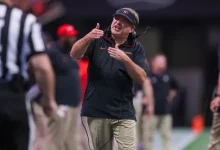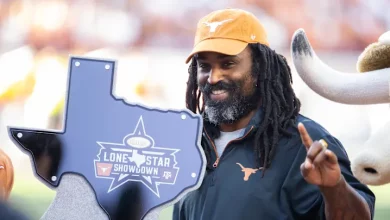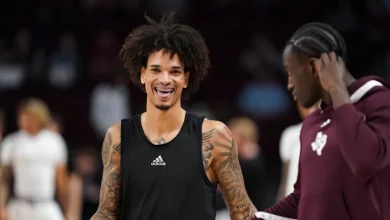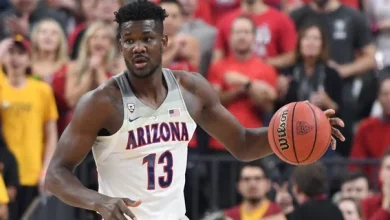Urban Meyer rejects college football GM position after conversations, issues sharp warning
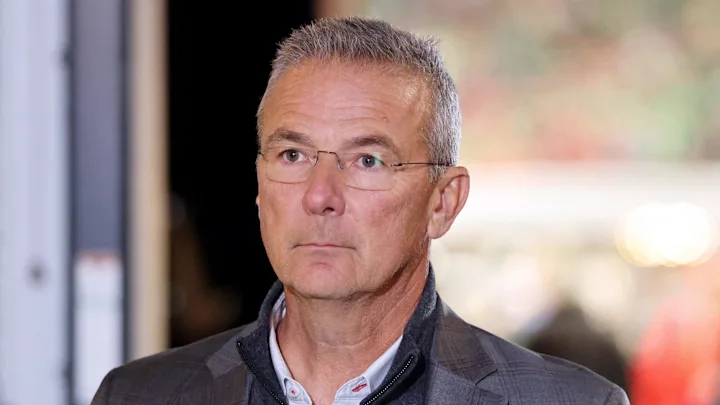
In a dramatic turn that stirred both headlines and heated debate across college football circles, Urban Meyer has officially declined a high-profile general manager role at a major Power Five program—citing growing concerns about the sport’s evolving structure and issuing a pointed warning about where things are headed.
Meyer, a three-time national championship-winning head coach and one of the most recognizable names in modern college football, was reportedly approached earlier this summer with an offer to become the General Manager of Football Operations at a leading Big Ten university. While the position would not have included on-field coaching duties, it would have granted him considerable influence over roster construction, NIL strategy, and overall program direction.
After extensive conversations with university leadership, athletic department officials, and former coaching colleagues, Meyer ultimately walked away from the offer—and offered strong words about the current state of the game.
In a candid interview with a national media outlet following the decision, Meyer revealed why he chose to pass on the job:
“The conversations were great. The vision was clear. But I realized quickly that the game I would be walking into is no longer the one I spent my life building,” Meyer said. “It’s not the same sport anymore—not structurally, not culturally, not ethically.”
He continued:
“What’s happening with NIL, the transfer portal, and lack of institutional control—it’s unsustainable. It’s chaos disguised as innovation.”
Meyer emphasized that while he supports players having opportunities to earn, he believes the system has become too transactional, too short-sighted, and dangerously influenced by “unchecked money and ego-driven decision-making.”
The position Meyer turned down is part of a growing trend in college football: the rise of GM-style front office positions within athletic departments. These roles aim to modernize roster management, combining traditional recruiting, transfer evaluation, NIL negotiations, and strategic long-term planning.
The Big Ten program courting Meyer (whose name remains undisclosed by request) reportedly offered him a multi-year deal worth $2.5 million annually, with full control over roster strategy, budget oversight, and direct input into head coaching decisions.
But for Meyer, the idea of entering that space without the ability to control the environment—as he once did as a head coach—was ultimately unappealing.
“If I’m going to be responsible for a program’s trajectory, I have to have the power to set the tone. This wasn’t that,” he said.
Meyer’s critique of modern college football centered largely on the Name, Image, and Likeness (NIL) ecosystem and the transfer portal, which he called “the two most destabilizing forces in college athletics.”
He painted a picture of dysfunction:
- Coaches negotiating with 17-year-olds over six-figure NIL packages
- Boosters interfering in roster decisions
- Players switching schools mid-season
- “Free agency” overriding team culture and long-term development
“The core of college football was always built on development, continuity, and shared mission,” Meyer said. “That’s being replaced by contracts, clauses, and one-year rentals. We’ve lost the team-building part.”
While he made clear he supports athletes benefiting financially from their talent, Meyer believes that lack of federal regulation and the absence of leadership from the NCAA has created a system “ripe for abuse, misalignment, and short-sightedness.”
Urban Meyer last coached in college at Ohio State in 2018, where he finished with an 83–9 record and a national title in 2014. Before that, he won two national championships at Florida and rebuilt Utah into a powerhouse.
Despite his decorated record, Meyer has not been without controversy. His brief and tumultuous stint as head coach of the NFL’s Jacksonville Jaguars ended in scandal and dismissal. Since then, he has remained largely out of coaching but served as a college football analyst for Fox Sports’ “Big Noon Kickoff.”
Rumors have swirled in recent years about potential returns to coaching or front-office work. The GM position was seen as a way for him to re-enter the sport without the 24/7 demands of being a head coach.
But with this decision, Meyer appears to be stepping back further, disillusioned by what he sees as a sport losing its identity.
Perhaps the most striking part of Meyer’s remarks came when he issued a direct challenge to college football leadership—or what he sees as a lack thereof.
“If no one steps in to fix this—Congress, the NCAA, conference commissioners—this sport is going to fracture. Maybe not this year. Maybe not next. But it’s coming.”
He warned of:
- A widening gap between haves and have-nots
- Burnout among coaches
- Players making short-term decisions with long-term consequences
- Erosion of fan loyalty as rosters turn over yearly
Meyer also cautioned that many programs are building unsustainable NIL ecosystems that will eventually collapse under financial pressure and lack of ROI.
“I’ve talked to people inside top programs. Some are already underwater financially. The only thing keeping it afloat is donor fatigue—or donor delusion. And that won’t last.”
Meyer’s decision and comments sparked immediate and widespread reaction.
Some praised his honesty.
- Paul Finebaum, SEC Network:
“Urban Meyer is saying what a lot of coaches wish they could say. The system’s broken, and he’s right—there’s no sheriff in town.”
Others questioned his motivations.
- Anonymous Power Five assistant coach:
“It’s a little rich for Urban to preach about ethics and culture after what happened in Jacksonville.”
Still, most agreed that his remarks point to deeper truths. Coaches across the country—especially in the SEC and Big Ten—have privately expressed similar frustrations about roster volatility, NIL expectations, and the recruiting calendar being in permanent overdrive.
Urban Meyer may have declined this particular role, but his comments may leave a longer-lasting impact than the job itself. With the 2025 season approaching amid pending lawsuits, unionization efforts, and potential NIL cap legislation, his voice adds pressure to a college football system crying out for clarity and structure.
Meyer didn’t rule out future involvement in the sport but indicated it would take significant change for him to jump back in.
“I love the game. I love the players. But I don’t love the direction. Until that changes, I’m staying on the sidelines.”
Urban Meyer’s refusal to re-enter college football through a front-office role speaks volumes—not just about his personal journey, but about the broader disillusionment many long-time insiders feel.
In walking away, he didn’t just decline a job. He lit a warning flare over the state of the game.
Whether college football heeds it remains to be seen.
But one thing is clear:
A sport once built on structure, loyalty, and program-building is now navigating an uncertain era—and even its biggest names are beginning to ask, “Is it still worth it?”

